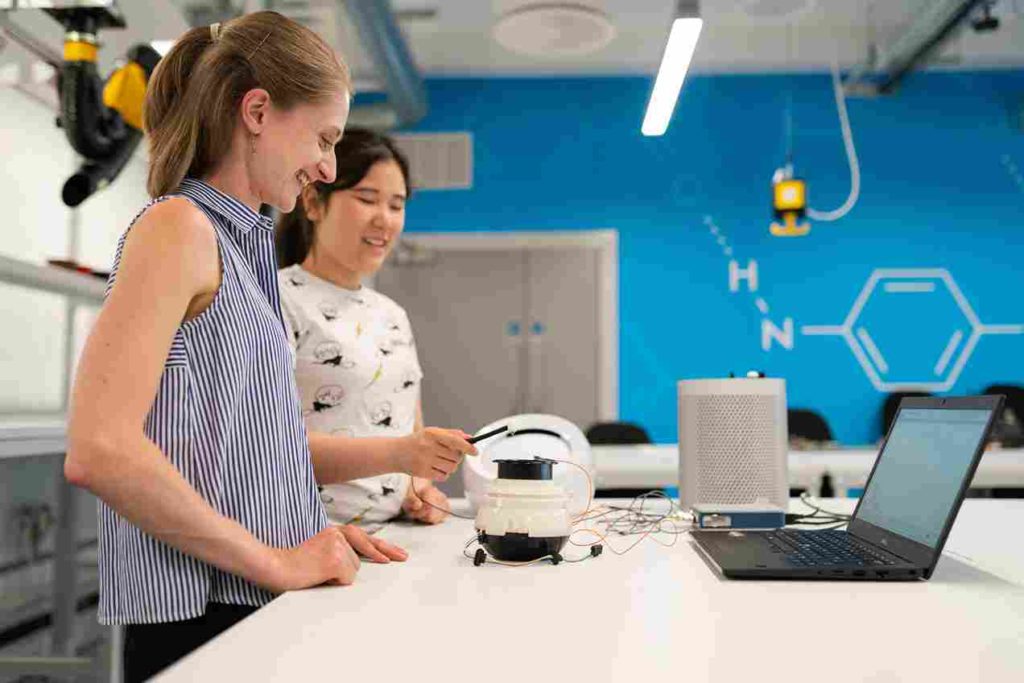
Technology is dramatically changing everyday life. Nearly everything, from daily tasks to healthcare and communication, is automated. In the healthcare space, technology eases caring for the elderly. Incorporating technology into healthcare has transformed service delivery, enhancing people’s overall quality of life.
While technology is paramount in entrepreneurship, entertainment, and communication, we focus on its impact on the health sector here. So, read on to discover the incredible ways technology helps many people overcome health challenges below.
1. Smart Solutions for Incontinence
One area where technology has had a huge impact is urinary incontinence management. Traditional remedies like adult diapers have evolved to offer more functionalities and be more comfortable. This makes finding technologically advanced adult diapers that are discreet and enhance comfort for men possible.
Cutting-edge adult diapers for men and women designed by reputable sellers now feature smart sensors. These integrations monitor moisture levels and notify the caregivers or users regularly. The innovation is vital in indicating the need for a diaper change. This enhances user experience, making achieving optimal skin health and hygiene easy.
Innovative adult diapers incorporate odor-control technologies to address one of the common concerns associated with incontinence. It boosts physical fitness and psychological well-being by reducing self-consciousness and anxiety.
2. CRISPR Gene Editing
Clustered Regularly Interspaced Short Palindromic Repeats (CRISPR) is a gene editing technology that can potentially reveal how diseases can be treated. With its capability, CRISPR gene editing can help advance the discovery of effective treatments for killer diseases like HIV and cancer.
Regarding mode of action, CRISPR gene editing harnesses the natural mechanism of the invading microorganisms and cuts out the infected DNA strands. By altering the cell mutations, CRISPR can transform how conditions like sickle cell disease and cystic fibrosis are treated.
Many ethical concerns surround the application of CRISPR gene editing. A good example is the claim that it can change children’s genomes in life. As such, regulations surrounding CRISPR gene editing are serious.
3. Introduction of Smart Bandages
A smart bandage is a high-end wound-covering option that is fitted with sensors so that it can monitor the process of wound healing. It was developed to help speed up the closure of wounds, increasing blood flow and lowering scar formation as the skin recovers.
An intelligent bandage can trigger the healing electrical impulses to accelerate tissue close. In addition, since it’s a thin electronic layer, the temperature sensors ensure that the wound has optimal temperature for faster recovery.
Wireless smart bandages are designed to monitor the state of the wound without exposure. The protective mechanism benefits diabetic patients since they don’t have to open the wound often. People with diabetes usually experience a slower healing process compared to people without.
4. Stem Cell Cure For Diabetes
According to the IDF Diabetes Atlas, it’s estimated that 537 million people aged between 20 and 79 years have diabetes. Sadly, these statistics are projected to rise to 643 million by 2030 and 783 million by 2045.
Experts have it that for proper treatment of type 1 diabetes, the affected need to use insulin injections. Daily monitoring of glucose levels is also vital. Fortunately, with the introduction of stem cells, it is now easier to replicate the insulin-producing beta cells.
Vertex Pharmaceutical recently created implant devices that can replace millions of beta cells. That helps control glucose levels since the body will have enough insulin despite the immune cells fighting them.
5. Health Trackers, Sensors and Wearables
Gone are the days when you had to wait for the symptoms to know that you’re really sick. With the health trackers, patients are responsible for taking care of themselves and alerting the health team early before their health gets into a critical state. These days, the most common health trackers, sensors, and wearables can monitor vitals and give notifications whenever they rise beyond normal.
Whether you wish to manage weight, cognitive capabilities, stress level, or energetic state, you can effortlessly find a device to ensure you attain your goals without too much struggle. The beauty of health trackers is that they make the user’s sole point of care.
After monitoring one’s health, wearables and sensors typically share results with the physicians. Still, the selected platform can thoroughly analyze data and provide a detailed report. Healthcare workers are then left to make informed decisions based on the clinical presentation.
6. Nanotechnology for Accurate Drug Delivery
Nanotechnology is a medical advancement that helps in the manipulation of tiny particles. It involves the precision required in creating the nanocarriers for drugs. For example, the nanoparticles and liposomes that help in drug delivery. Since they target specific sites, drug side effects are significantly lowered.
For the orally consumed drugs, they must undergo the first-pass metabolism. Unfortunately, this inevitable step can lower the drug’s bioavailability. Nanotechnology can solve the mess by improving the efficiency of drugs with poor solubility. Ultimately, a more significant proportion of the medication will reach the bloodstream.
Conclusion
Health challenges can significantly affect one’s quality of life. Fortunately, technology is becoming a game changer in presenting innovative healthcare solutions. This guide highlights some of the ways technology is transforming our everyday lives.
The introduction of smart solutions for incontinence, like adult diapers for men, has made life more bearable. The stem cell cure for diabetes has brought hope to diabetic patients, and the health trackers, sensors, and wearable have protected them from getting into a worse health state.
